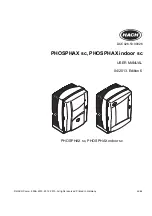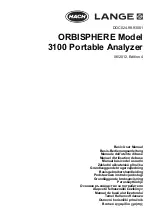
TMA Q Series Getting Started Guide
1 1
Overview
The Thermomechanical Analyzer (TMA) is an analytical instrument
used to test the physical properties of many different materials.
The TMA instrument works in conjunction with a controller and
associated software to make up a thermal analysis system.
Your controller is a computer that performs the following functions:
•
Provides an interface between you and the analysis instruments
•
Enables you to set up experiments and enter constants
•
Stores experimental data
•
Runs data analysis programs.
NOTE: For technical reference information, theory of
operation, and other information associated with the
TMA and not found in this manual, see the online help
associated with the instrument control software.
TMA System Components
Your instrument consists of the following
components (see the figure here).
•
The
balance enclosure
surrounds the TMA
balance mechanism, which exerts a
specified force on the sample.
•
The
probe assembly
is inter-changeable for
making several different measurements on
various sample materials.
•
The
stage
is an interchangeable component
that supports the sample during
measurement.
•
The
furnace assembly
surrounds the stage to
heat the sample; it contains the integral
cooling container, the furnace monitor
thermocouple, and the sample purge line.
Chapter 1
Introducing the TMA
Balance Enclosure
Probe Assembly
Stage
Furnace Assembly
Weight Tray Door
Touch Screen












































